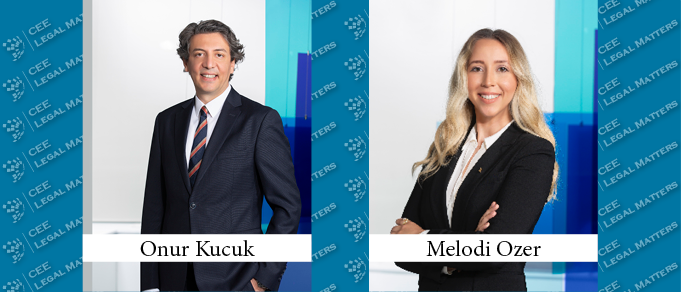COVID-19 is over – well, almost over. We are now left with the aftermath of a baby boom, some Bored Apes, and the Metaverse. All these new phenomena that surged during the pandemic eventually turned their attention to law firms, for wide-ranging legal considerations associated with all kinds of communication, from the internet, to e-commerce, to OTT, and telecommunications. Technology, media, and telecommunications, otherwise known as TMT, are now the fastest-moving areas.
Technological progress has pushed tech companies to partner up with legal teams on issues of intellectual property considerations, e-commerce and internet regulations, banking, data protection, privacy, cybersecurity, ESG requirements, the re-evaluation of remote work scenarios, supply-chain schemes on blockchain, and more. This sector requires a more forward-thinking and flexible approach in law and is hungry for guidance on navigating compliance-related challenges. Elon Musk was recently quoted saying that “one idea would be to put a bitcoin node in SpaceX Starlink terminals, so that way more people would be running bitcoin.” This undoubtedly highly encourages the legal world to embrace fast-paced technological improvements.
All the while, the EU introduced the Digital Markets Act, proposed the act for harmonized rules on artificial intelligence, and is already finalizing a legal text for landmark Crypto regulations under MiCA – the Regulation on Markets in Crypto-Assets. In the meantime, Turkey, which is generally keen on its strategic timing in parallel with the EU, is also taking some steps in several legislative areas in relation to TMT. Some of them are worth mentioning here.
Shortly after the EU published its proposal regulation laying down harmonized rules on artificial intelligence, the Turkish data protection board published a guide including recommendations for developers, manufacturers, service providers, and decision-makers operating in the field of artificial intelligence. Along with this, the Presidential Circular on the National Artificial Intelligence Strategy (2021-2025) was published, offering an outlook for the upcoming AI plan to be implemented in Turkey. The strategy is Turkey’s first and most comprehensive framework text in this field.
During the pandemic, a regulation on remote identification methods to be used by banks and the establishment of contractual relations in an electronic environment was published. With this, it is now possible to perform identity verification proceedings in banks through video calls online, without the need for a customer representative or the customer to be physically present in the same environment. A short while after, establishing remote banking contracts became possible as well. Making it possible to establish a contractual relationship electronically.
The 5G telecommunication technologies were already on the agenda in North America, China, and Europe before COVID-19. We saw that China took faster action during the pandemic and allowed 5G investments earlier on in the 5G race. Turkish companies, who had started 5G investments before COVID-19, are now expected to continue their investments in 6G. The rise in flexible working, e-education, e-commerce, and even e-entertainment models necessitated an increase in internet access speed and capacities. Although for now, there are no new regulatory developments on the horizon for 6G, there are some new regulations expected for internet communication service providers and OTT service providers. It is on the agenda of the Information Technologies and Communications Authority to include OTT services in the scope of the Electronic Communications Law. Therefore, it is important for OTT service providers to start some preliminary studies on compliance with the legislation. Not to forget, social media influencers got their fair share of this legal business as well. The Guideline on Commercial Advertisement and Unfair Commercial Practices Conducted by Social Media Influencers was published this year, aiming for separate liability of advertisers, advertisement agencies, and social media influencers in cases of guideline violations.
In the meantime, a crypto assets legislative draft, aiming to regulate crypto assets and markets, was unofficially leaked. Although, in the current state, crypto asset service providers are not required to register or obtain a license by a regulatory authority, licensing and registration requirements will likely be imposed on crypto asset exchanges soon enough.
As a final note, KPMG reported, in May 2022, that some of the top TMT skills in the sector are listed as data science and analytics, programming and development, data visualization, artificial intelligence, and machine learning. At this point, it would be safe to say that the modern TMT lawyer must not only keep up with technological advancements but become confident enough to navigate the creative demands of tech geniuses like Musk.
By Onur Kucuk, Managing Partner, and Melodi Ozer, Associate, KP Law
This article was originally published in Issue 9.10 of the CEE Legal Matters Magazine. If you would like to receive a hard copy of the magazine, you can subscribe here.

